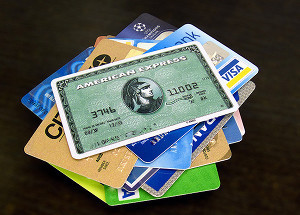Report Says The Poor Subsidize Credit Card Reward Programs
A new study from the Federal Reserve Bank of Boston says that credit card reward programs have a sneaky hidden cost that the card holder doesn’t have to bear. This occurs because the fee that a retailer pays to run a credit card varies with every card, and reward cards cost more to process–in other words, the card issuer passes the cost of the rewards program on to the retailer. The retailer adapts by raising prices across the board, which distributes the cost of the reward program among all shoppers.
This affects those who pay with cash the most, since they’re essentially paying to help subsidize a program that they don’t benefit from. And poor people tend to use more cash and fewer credit cards.
The New York Times quotes some actual figures from the report:
After accounting for rewards paid to households by banks, the researchers concluded that the lowest income household (those making less than $20,000 a year) pays $23 a year, while the highest income household (those making $150,000 or more annually) receives a subsidy of $756 every year.
As a result, the researchers wrote, reducing the transfers could potentially increase consumer welfare, and the transfers may be something that public policy makers may want to address.
“How Much Credit Card Rewards Cost the Poor” [New York Times via The Daily Beast]
Federal Reserve Bank of Boston report (PDF) (Thanks to Howard!)
Want more consumer news? Visit our parent organization, Consumer Reports, for the latest on scams, recalls, and other consumer issues.


